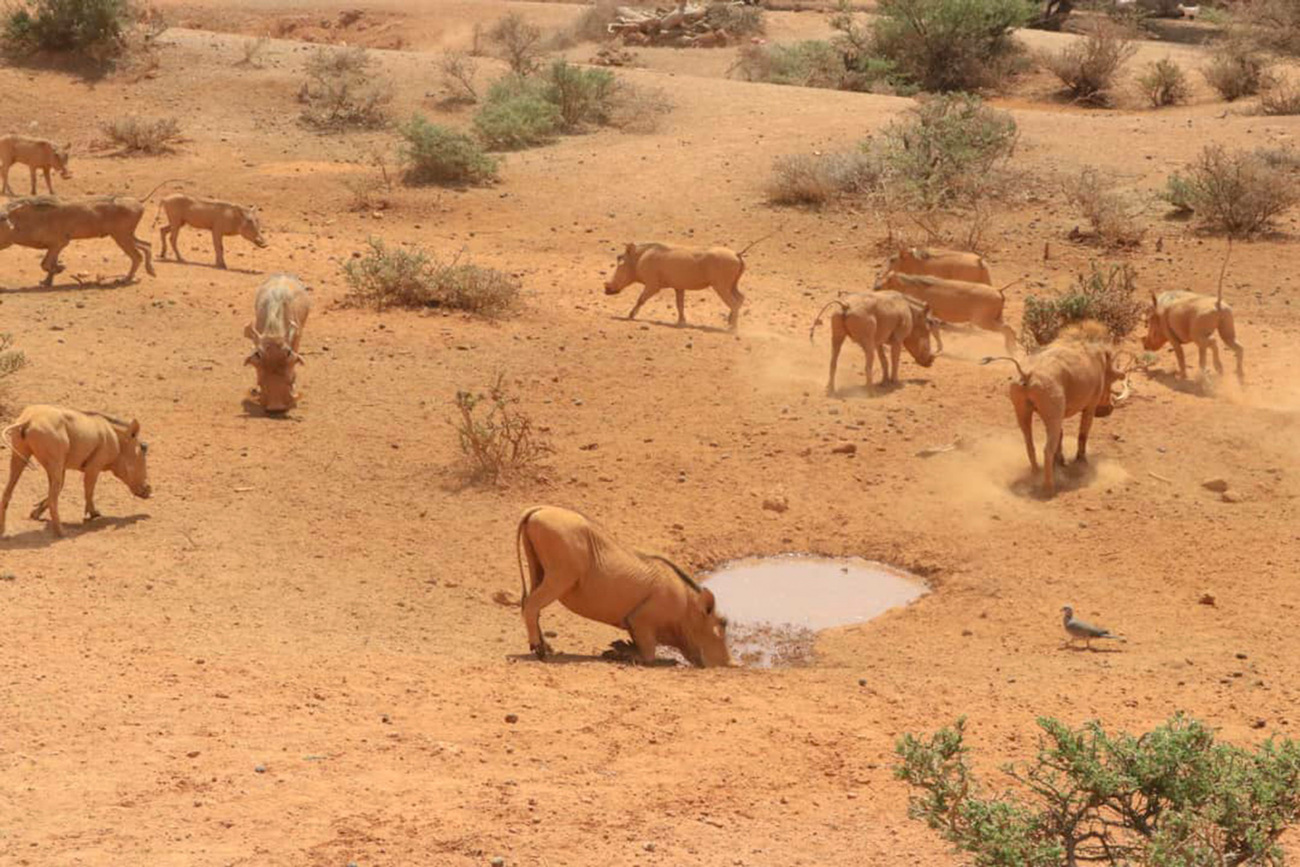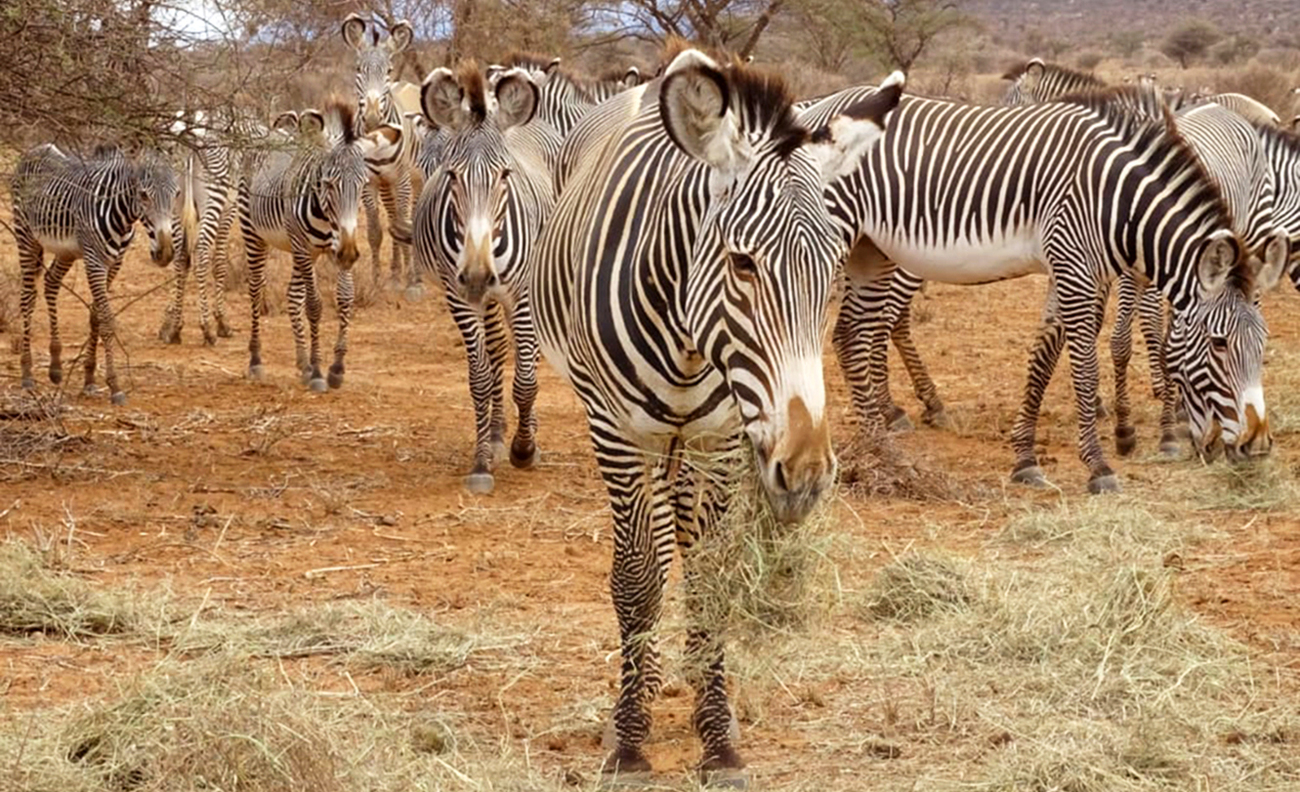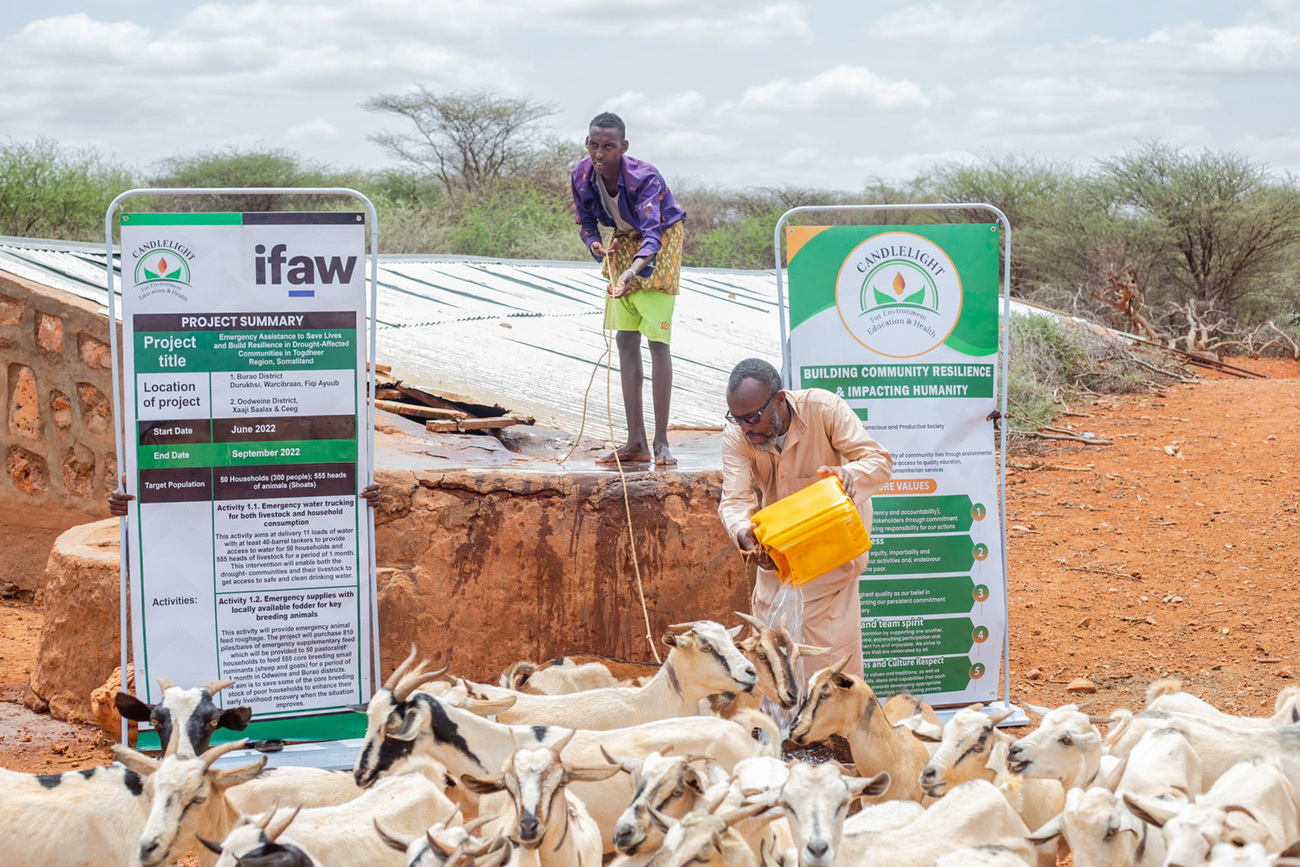Blog
50 years after Jaws: setting the record straight about sharks
Read moreextreme drought threatens animals and people in East Africa

The eastern and central regions of the Greater Horn of Africa are experiencing their longest and most severe drought in 40 years.
According the world meteorological organization, this is the fourth consecutive season of failed rains. The prolonged drought is ravaging wildlife and livestock, while putting millions of human lives at risk.
The drought in Kenya has killed hundreds of elephants and numerous other wildlife this year.
IFAW’s rangers at Olgulului Ololarashi Group Ranch in the Amboseli landscape are seeing more animals that are lost, dehydrated or hungry on their patrols than ever before.
Evan Mkala, IFAW’s program manager for the Amboseli region, says the carcasses are almost everywhere. “I have lived around here for most of my life, and we have never seen anything this devastating,” he says. “You can smell the rotting carcasses all around the area.”
In addition to helping animals that are too weak to move, the rangers are tasked with removing tusks from dead elephants almost every other week to prevent the ivory from being stolen by poachers, in line with the Kenya Wildlife Service's policies.
Evan explains that incidences of poaching have been on the rise, with poachers desperate for money to purchase water and hay for their cattle. “The lack of food security and rainfall has pushed people to drastic measures.”

In drought-affected northern Kenya, home to the endangered Grevy’s zebra, IFAW-supported Grevy’s Zebra Trust helped to feed approximately 500 zebras daily between August and October by providing hay and supplements. IFAW also supplied clean drinking water to nearby communities.
At the end of October, northern Kenya received some sporadic showers, but many areas remain dry.
In Somaliland, severe drought conditions have displaced hundreds of thousands of people and decimated crops and livestock.
Last year, IFAW and Candlelight worked together with the communities in Ceeg, Warcibran, Fiqi-ayub, Haji-Salah and Duruqsi to provide water for the people and their animals, and fodder feed for livestock as part of a temporary relief plan. This year, the situation has undoubtedly worsened.

Therefore, we recommenced our relief plan and delivered 40 barrels of water to 500 households, which enabled both the drought-affected communities and their 555 livestock (core breeding sheep and goats) to get access to safe and clean drinking water. We also provided emergency animal supplementary feed to 50 of the most affected households in Odweine and Burao districts to alleviate the suffering of the animals and secure the livelihoods of community members.
Our work can’t get done without you. Please give what you can to help animals thrive.
Unfortunately, the browser you use is outdated and does not allow you to display the site correctly. Please install any of the modern browsers, for example:
Google Chrome Firefox Safari